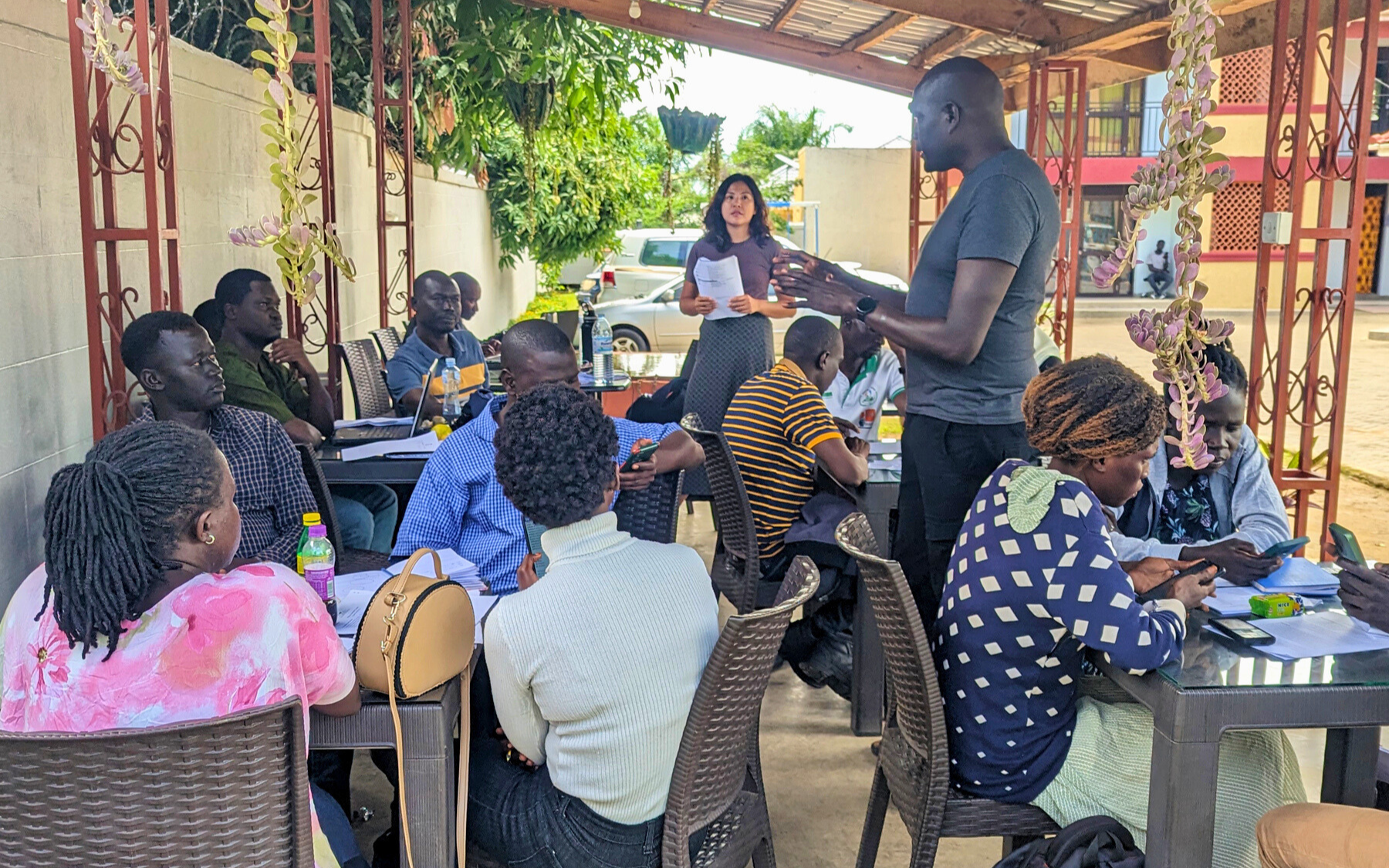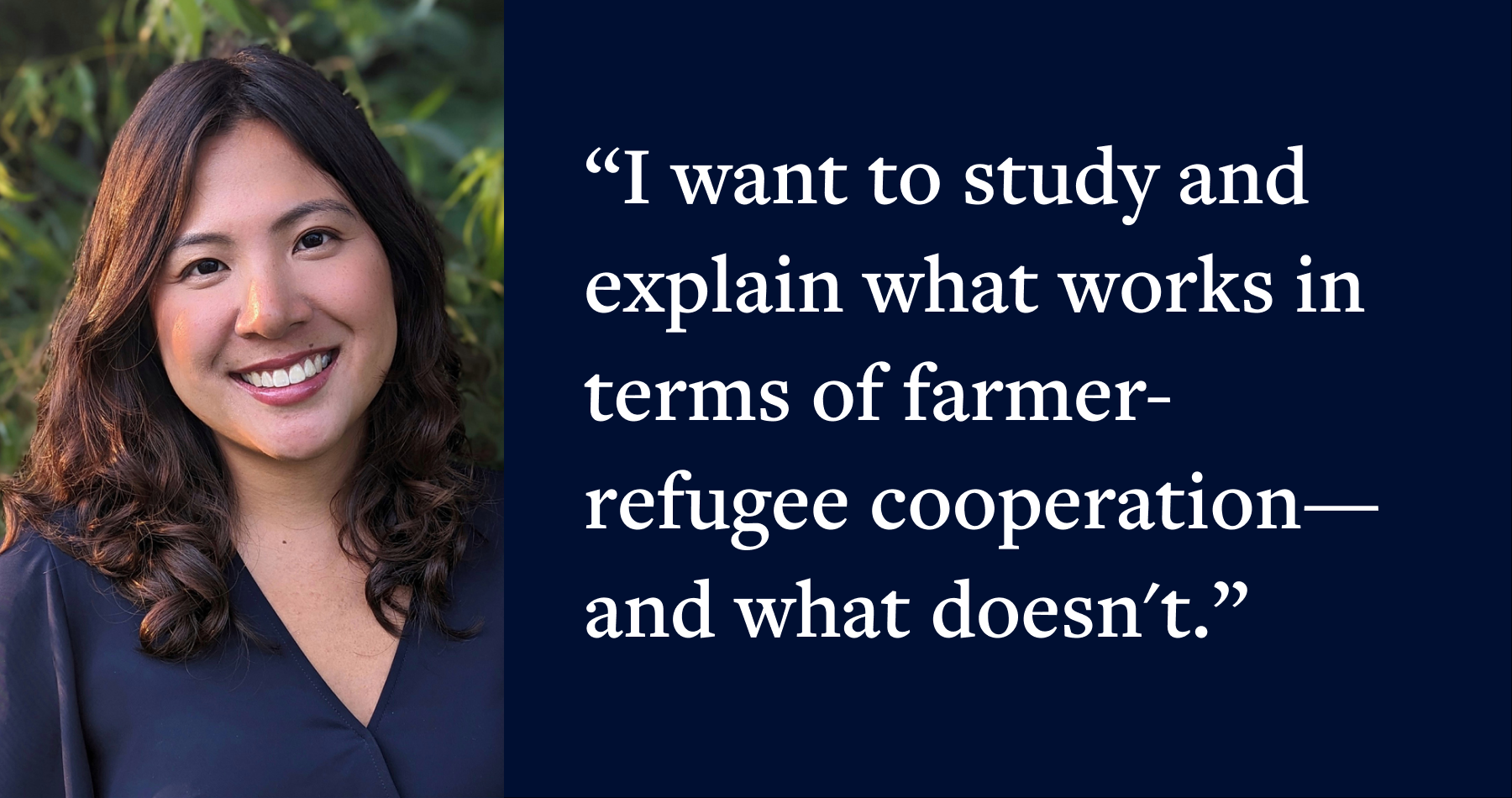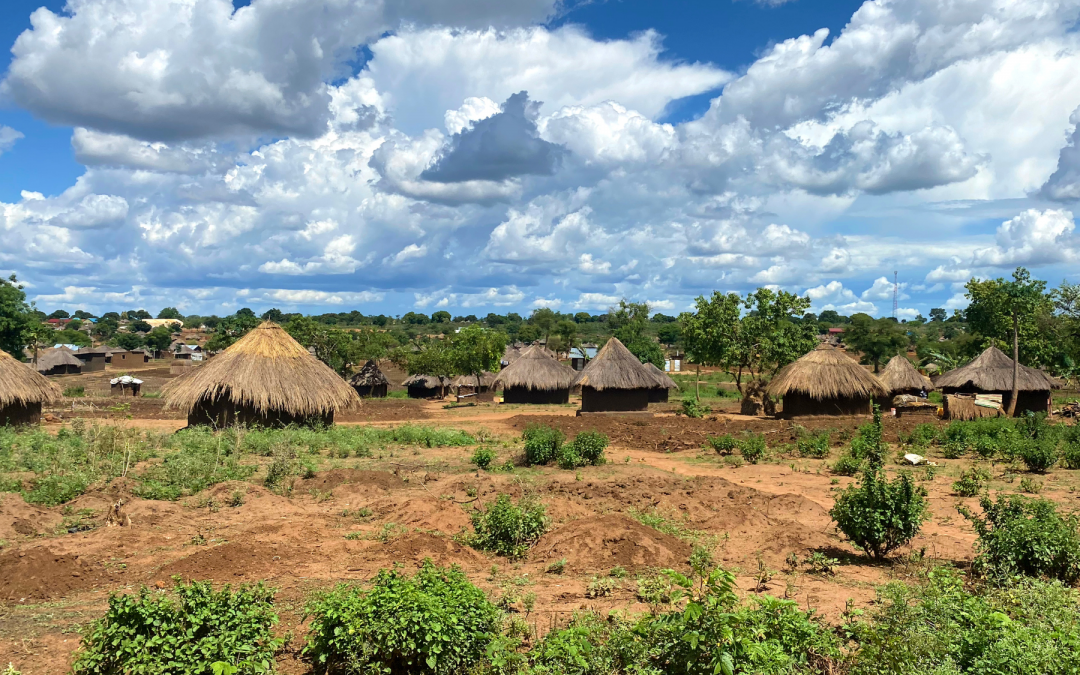Building positive cross-cultural understandings requires awareness—especially if the goal is cooperation. Rackham student, political science Ph.D. candidate, and 2023 Public Scholarship Grant recipient Rebecca Wai is illuminating new dimensions of awareness through her research. Specifically, Wai is interested in ways that nongovernmental organizations (NGOs) in Uganda can help integrate refugees into host communities and foster productive cooperation.
“My research in the West Nile region points to Ugandan farmers’ positive attitudes towards refugees on an individual level—‘I’m willing to be their friend or get married to them’—but this doesn’t necessarily translate into positive working relationships between the groups, especially if they’ve had bad experiences with someone from the other group in the past. There are a lot of biases that can get confirmed and solidified, and when that happens, cooperation goes awry,” Wai says.
An important hallmark of Uganda’s refugee settlement policy is that refugees receive land from the government, a plot to accommodate a modest home build and a small subsistence farm. If refugees are interested in growing crops to sell, land is leased from neighboring Ugandans. Most of the time, land available for lease has yet to be cleared for farming. Many refugees report that farmers will rescind the lease agreement once the refugees clear the land. As individuals share these exploitative experiences with their neighbors, the relationship between Ugandans and refugees can be incredibly fraught, leading to perpetual distrust.
Wai conducts her research in partnership with the Northern Uganda Resilience Initiative (NURI), an aid organization run by the Danish government together with Uganda. NURI hopes that by building positive social ties between Ugandan farmers and refugees, communities will see a reduction in distrust and uncooperative behaviors. During 2023, Wai conducted a year of fieldwork in Uganda with NURI, where she hired and trained a team to disseminate her surveys and conduct interviews for her research.
“My survey team is great. Since I am interviewing refugees from different tribes speaking different languages, I have a very diverse survey team made up of refugees and Ugandans, men and women,” Wai says. “They’re also my eyes and ears on the ground, and they help me understand what’s going on and what the issues are.”
Based on her early research findings, Wai hypothesizes that if refugees and farmers have positive experiences when individuals are first introduced, the two groups will find pathways to productive collaboration.

The participants in Rebecca Wei’s research come from many different regional tribes and speak different languages. Her research team is made up of individuals who speak a variety of different languages, ensuring the team can communicate effectively with those they survey and interview.
Understanding Uganda
While there’s been a lot of recent U.S. news coverage about the influx of refugees to developed countries like Italy, Greece, and the United States, a global view reveals a critical fact when it comes to understanding the refugee crisis: In 2022, 73 percent of the nations that hosted refugees were developing nations, a data point that has held relatively consistent for decades.
Africa’s largest refugee host, Uganda provides shelter to over 1.5 million people from South Sudan and Congo. The West Nile region is rural, with traditional thatch-roofed mud homes and dirt roads passable only for four-wheel drive vehicles and experienced motorcyclists.
Most refugees to Uganda travel through the arid landscape on foot across neighboring borders. An estimated 81 percent of Uganda’s refugees are women and children seeking refuge from civil war and conflict in their countries, including members of South Sudan’s pastoral Dinka and Nuer tribes—many traversing the arid landscape with herds of cows in tow—and individuals from the region’s agricultural Kakwa, Kuku, and Pojulu tribes.
Frictions and Factions
With so many groups of individuals who’ve experienced the harrowing traumas of war rebuilding their lives in Uganda, the interpersonal and intergroup dynamics are nuanced, layered, and exacerbated by intense day-to-day challenges.
Tasked with farming their leased plots, many refugees report that the soil is very rocky and challenging to farm. Additionally, Wai cites additional friction between the Ugandan farmers and the pastoral refugees, many of whom are new to farming.
“Eighty percent of Ugandans rely on agriculture for their livelihoods, and they tend to get along better with Sudanese tribes who are also agriculturalists,” she says.
Most resettlement programs in Uganda keep ethnic tribal populations together and separate from other tribes when assigning plots of land. This is largely done to prevent replication of the civil war dynamics found in the refugees’ homelands. Even still, tensions emerge.
“I’m noticing that Ugandans treat some tribes differently and some South Sudanese refugees prefer Ugandans to other South Sudanese tribes.”
The Cooperation Game

Based on her early research findings, Wai hypothesizes that if refugees and farmers have positive experiences when individuals are first introduced, the two groups will find pathways to productive collaboration.
In May 2024, Wai will return to Uganda to conduct a cooperation experiment to test the idea with a collaborative trust game between farmers and refugees. The game is designed to understand the farmers’ willingness to change their minds about the refugees—even if the first move in the game isn’t perceived as a collaborative one.
“I’m trying to see if an uncooperative out-group member solidifies discrimination,” Wai says.
“If a refugee makes a self-serving move at the start of the game, but they make up for that mistake throughout the rest of the game, will the farmers change their minds about them? Or have their minds already been made up?”
Ultimately, Wai hopes to share her full dissertation research outcomes in a learning and dissemination workshop with NGOs working in Uganda and with government officials.
“I want to inform people about what it looks like on the ground. I want to study and explain what works in terms of farmer-refugee cooperation—and what doesn’t.”
How Rackham Helps
In addition to being a recipient of the 2023 Public Scholarship Research Grant, funding her research in Uganda, Wai is a doctoral intern with the Strategy, Evidence, and Learning team at Freedom House, a nonprofit organization based in Washington, D.C., best known for political advocacy surrounding issues of democracy, political freedom, and human rights.
“Rackham has been really great about giving me the opportunity to access networks outside of academia,” Wai says.

